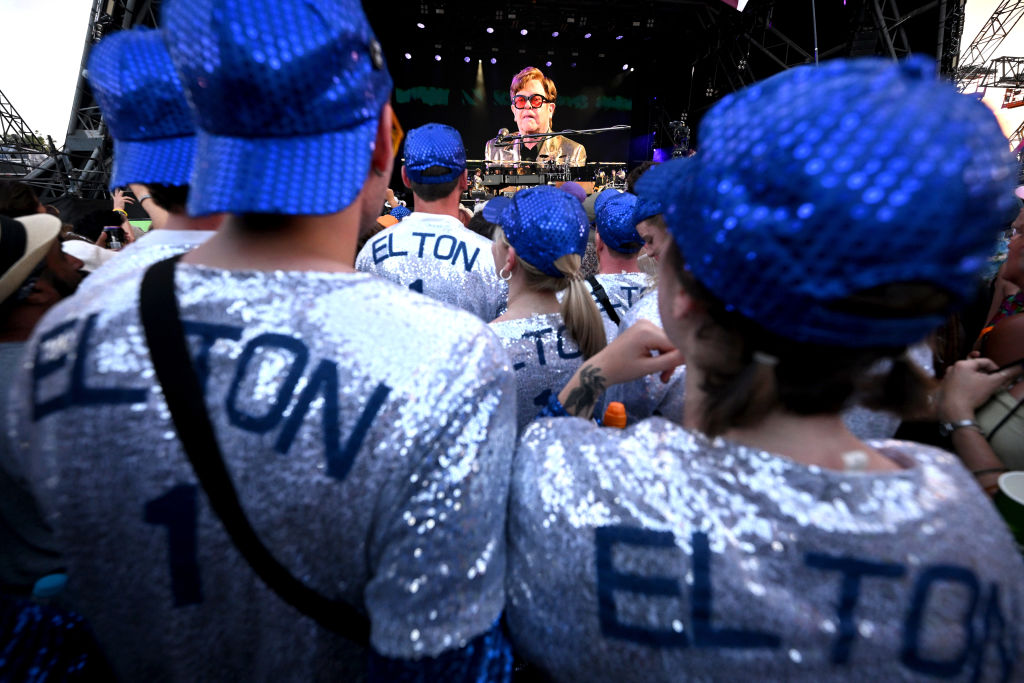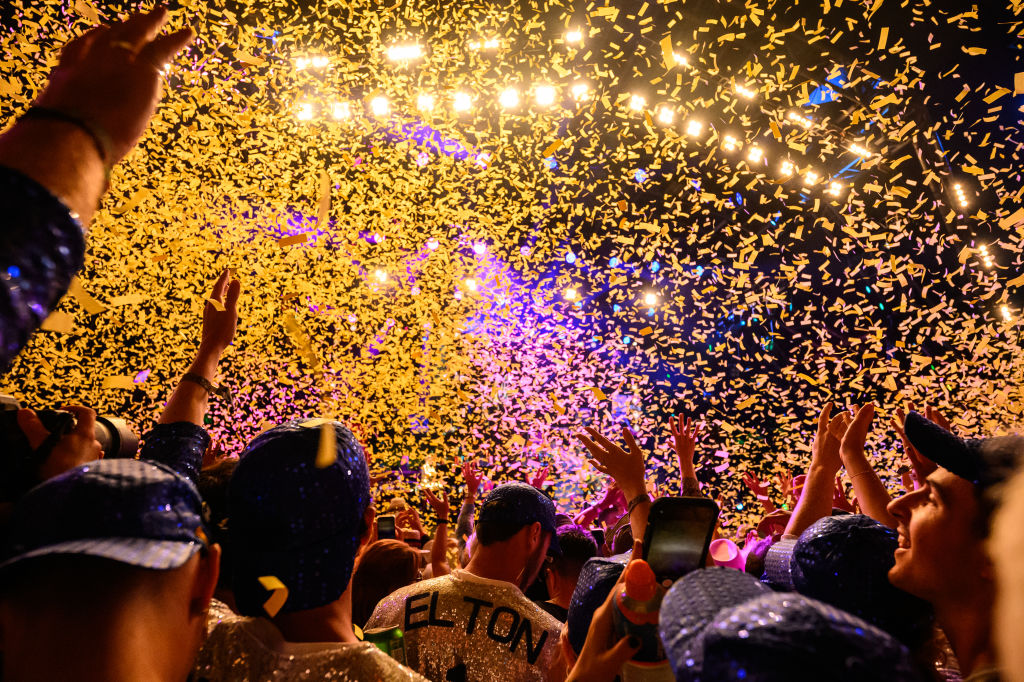Time was when the pinnacle of the summer’s musical experiences – certainly from a UK television perspective – was the Last Night of the Proms. Preceded by weeks of more staid performances of classical music which most people did not tune in to, the conclusion of the Proms season, which dates back to 1895, was a collective cultural experience. Watched by those at home, as well as the audience of the Royal Albert Hall, it was and remains an effervescent outpouring of costume, flag-waving and patriotic singing – more an example of massed karaoke than a traditional virtuoso performance, particularly during the annual rendition of Sir Henry Wood’s Fantasia of British Sea Songs.
The Last Night of the Proms was also culturally powerful – you’ll remember how anti-Brexiters used it as a stage (quite literally) to wave European Union flags after the 2016 referendum, filling the room with them; or how in 2020, in the aftermath of the killing of George Floyd and the Black Lives Matter campaign, the BBC, which organises the Proms, was in the headlines for deciding to cancel the annual rendition of ‘Rule, Britannia’, a decision which it reversed.
But now the Last Night of the Proms has been eclipsed – by Glastonbury. With the blanket TV coverage over the five-day event courtesy of our national broadcaster, as well as crowds of bourgeoisie devotees decamping to Worthy Farm in Somerset for an essentially annual vigil – albeit with occasional fallow years which ape the location’s agricultural antecedents – the last night of Glastonbury has become the new Last Night of the Proms.
For a globalised Netflix generations, the cultural space once occupied by the annual, rousing celebration of national pride through classical music at the Royal Albert Hall has been displaced by this altogether different spectacle
Instead of Elgar’s Pomp and Circumstance or indeed ‘Rule, Britannia’, sung with falsetto elan by an elite mezzo-soprano with surprising, unfurled Union Jack frills, we had ‘Tiny Dancer’, ‘I’m Still Standing’ and ‘Rocket Man’ – all performed by the man in the gold suit, with supporting contributions from the likes of Brandon Flowers of The Killers, who provided the red (that suit) and the white (those teeth), if not the blue.
In this, Glastonbury is like Last Night of the Proms but combined with the global star power of Wimbledon. Reportedly seven million people watched Elton John on Sunday night. And what they saw was nothing short of the cultural canonisation of Sir Elton, who in Glasto’s coveted closing night headline slot threw his career songbook at the world; he did it with love and the world loved it back. Here, after all, was the soundtrack to the lives of hundreds of millions of us, the musical accompaniment of the decades, one which was at its core a Boomer, Gen X and millennial nostalgia-fest, but that was good enough to even get the Zs singing along.
Conspicuously not singing along – certainly whenever the BBC panned to him – was the spectator-in-chief, Sir Paul McCartney, who coolly observed proceedings, presumably from some protected celebrity enclosure. At 81 Macca is but five years Elton’s senior, and has his own cultural canonisation at Glasto last year when he headlined on the Saturday night at the same Pyramid Stage. You can only guess what he was thinking as he watched Elton giving it his all, having so recently completed this rite of musical passage himself. But a rite of passage it is, in the same way Classic FM is both an imprimatur and retirement home for BBC newsreaders.
More than this, Glastonbury is also a national forum in the way that the floor of the Albert Hall once was, with flags and statements and costumes and an understood sense and expectation of collective experience coming from it. It’s a social role that’s contiguous – if you like – with the shared cultural frisson that comes from the latter stages of the football world cup, say, or the shooting of popular TV character like JR, Dirty Den or Ian Beale in soap.

I can’t claim to have personal knowledge of the King’s vinyl collection, or the CDs jamming the glovebox of his Aston Martin, but is it fanciful to imagine that the gold-suited Sir Elton and the Glastonbury thronging masses were being beamed into a television near him? I wouldn’t be surprised. Because it’s now a cultural phenomenon, one that unites Britons of all stripes, whether or not the shopping baskets they fill are from Waitrose, Morrisons or Aldi.
For a globalised Netflix generation, the cultural space once occupied by the annual, rousing celebration of national pride through classical music at the Albert Hall has been displaced by this altogether different spectacle – one conceived on a larger canvas in human terms and with rather different intentions in mind.
Five decades on from the first Glastonbury in 1970 – coincidentally, when Sir Elton dates his musical career from – the fields of dreams have it. Since then Parry and Elgar have been displaced by the likes of Sir Elton, the Arctic Monkeys and indeed Dolly Parton – a Glasto legend in 2014, don’t forget – and to a greater degree than many of us have realised the Last Night of the Proms has handed the baton on to the headliners of Glastonbury. That’s no small achievement for Worthy Farm.






Comments